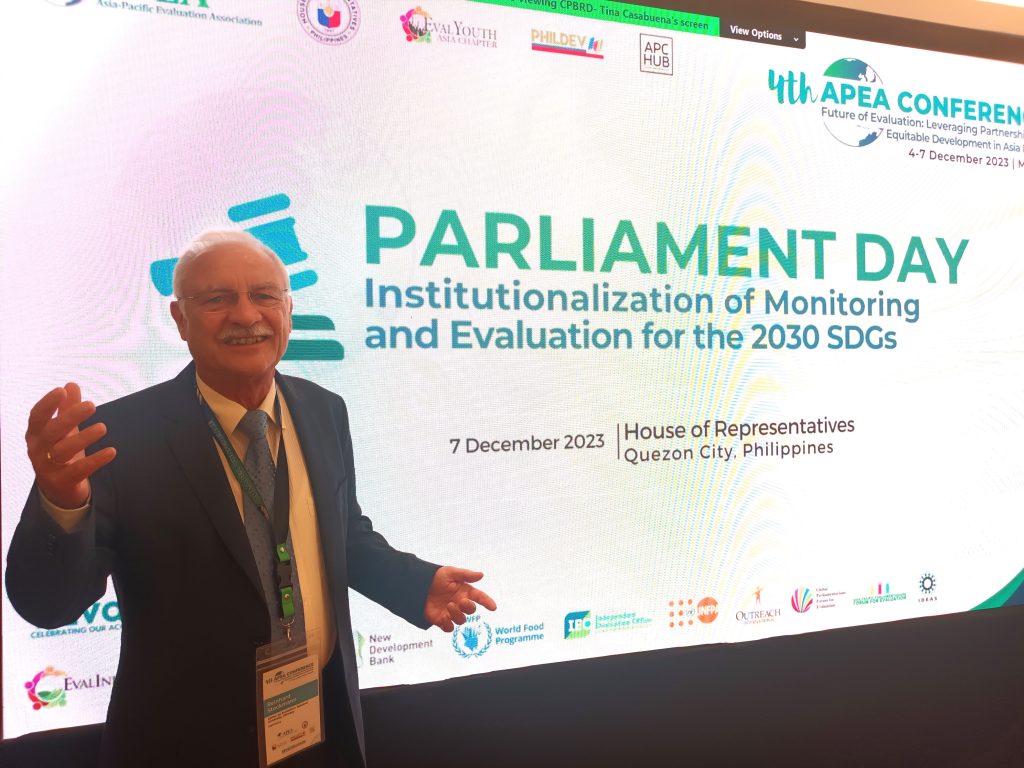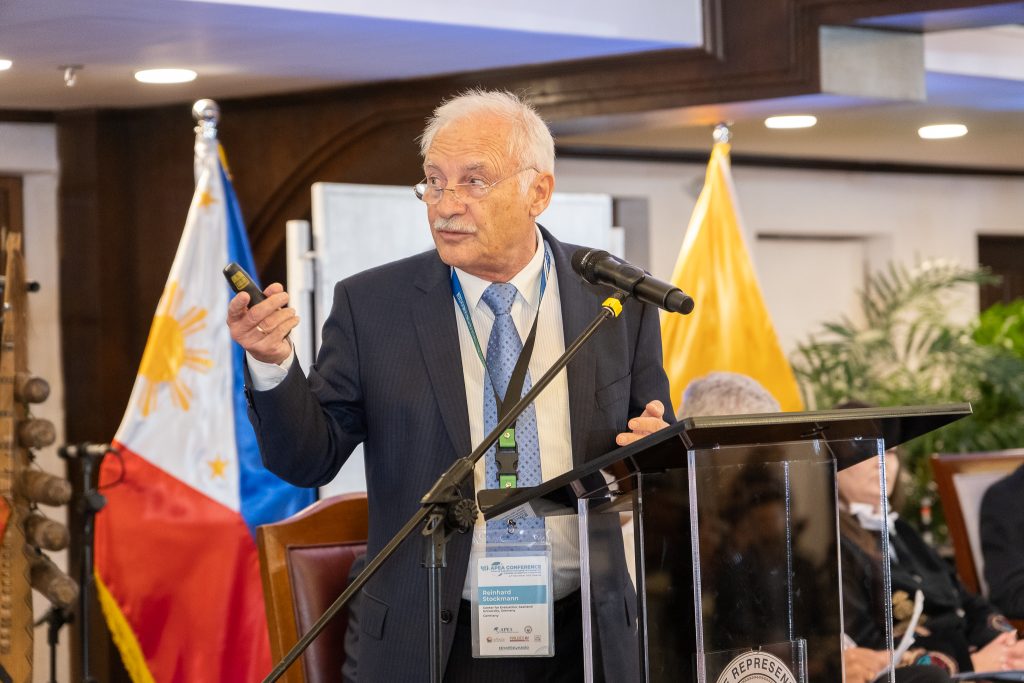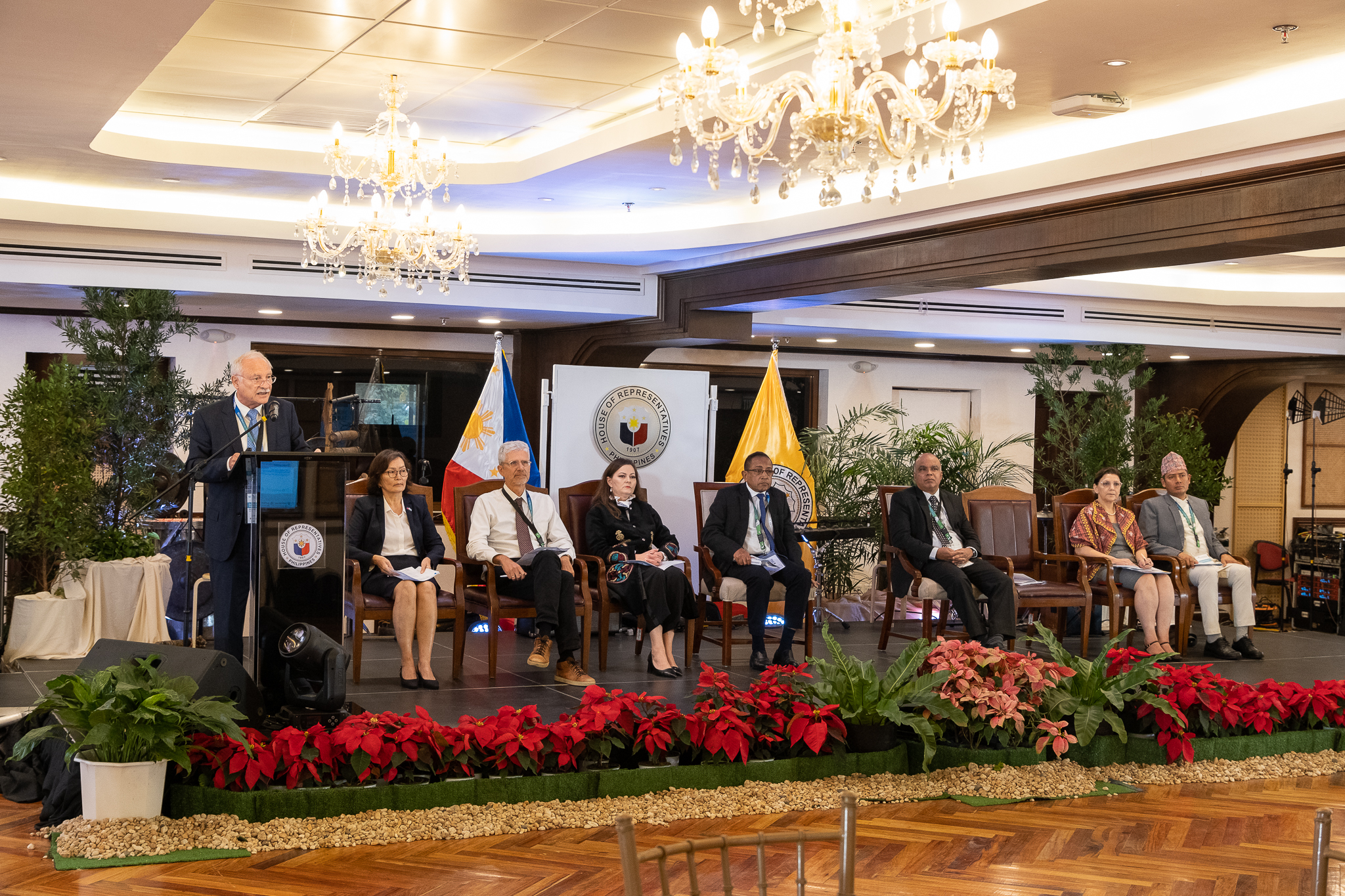Manila Declaration calls for more parliamentary engagement
Over 200 academics, parliamentarians, administrators and evaluators from around 40 countries discussed the future of evaluation in the region in Manila in early December 2023. The recurring core message of the Asia Pacific Evaluation Association (APEA) conference was: “Evaluation is essential for good governance”. Evaluation and national evaluation policies should form the basis “for evidence-based policy making”, said APEA President Asela Kalugampitiya. Without the use and application of evaluations, the Sustainable Development Goals (SDGs) cannot be achieved. To lend particular weight to their arguments, the conference adopted a “Manila Declaration” in which the following demands are made:
- Engage and support parliaments for greater demand and utilization of credible, timely, and useful M&E information;
- Strengthen national M&E ecosystems through legislation, guidelines, and other mechanisms;
- Promote partnerships for evaluation capacity development;
- Promote country-led and community-owned evaluations:
- Promote the use of credible and timely country-led evaluations
Prof. Dr. Reinhard Stockmann made it clear in his keynote speech, in which he presented the latest results of the Evaluation Globe project, just how important these demands are in the Pacific-Asian region. The results show that the region still has a lot of catching up to do in terms of evaluation compared to the countries of America and Europe. This applies both to the development of institutional structures and the use of evaluation by administrations and parliaments.


All participants were invited to the House of Representatives of the Philippines at the end of the conference to discuss the importance of evaluation for evidence-based policy with political leaders. The Speaker of the House, Ferdinand Martin G. Romualdez, emphasized the “crucial role of Parliaments in engendering a whole-of-government culture of evaluation and evidence-based policy making for results”.
In his keynote speech at the congress, Prof. Dr. Reinhard Stockmann showed how parliamentarians can use evaluation results for various parliamentary tasks. He also pointed out the importance of parliaments in creating the legal framework for the institutionalization of evaluation in a country. Without institutional anchoring of evaluation, hardly any systematic application and use of evaluation takes place – according to the results of a study of more than 50 countries in the CEval Evaluation Globe study. He therefore called on parliamentarians to push ahead with legislation on evaluation and to call on the government to carry out and use evaluations.
For more, please read the 4th APEA Conference Report.


